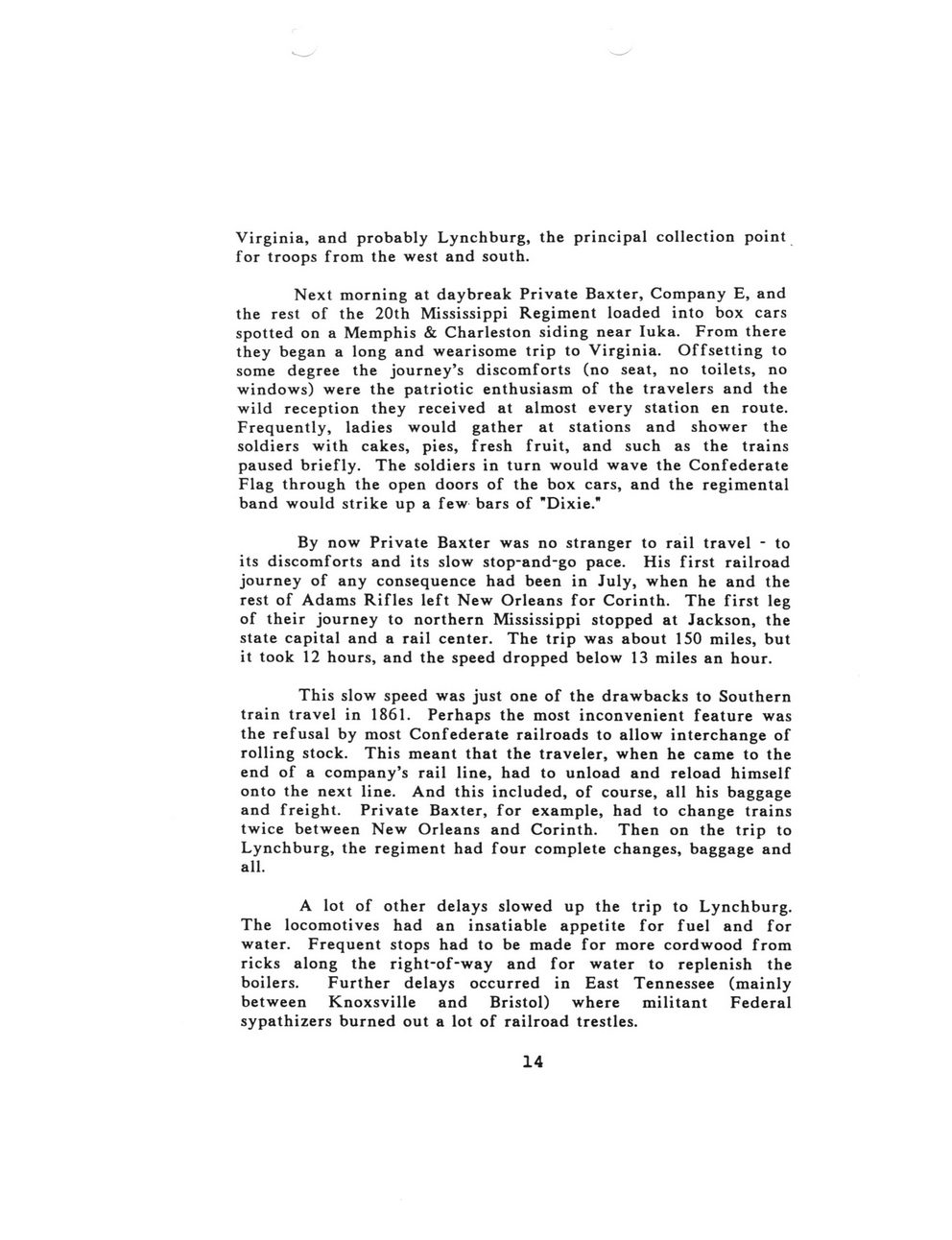This text was obtained via automated optical character recognition.
It has not been edited and may therefore contain several errors.
Virginia, and probably Lynchburg, the principal collection point for troops from the west and south. Next morning at daybreak Private Baxter, Company E, and the rest of the 20th Mississippi Regiment loaded into box cars spotted on a Memphis & Charleston siding near Iuka. From there they began a long and wearisome trip to Virginia. Offsetting to some degree the journey?s discomforts (no seat, no toilets, no windows) were the patriotic enthusiasm of the travelers and the wild reception they received at almost every station en route. Frequently, ladies would gather at stations and shower the soldiers with cakes, pies, fresh fruit, and such as the trains paused briefly. The soldiers in turn would wave the Confederate Flag through the open doors of the box cars, and the regimental band would strike up a few bars of "Dixie." By now Private Baxter was no stranger to rail travel - to its discomforts and its slow stop-and-go pace. His first railroad journey of any consequence had been in July, when he and the rest of Adams Rifles left New Orleans for Corinth. The first leg of their journey to northern Mississippi stopped at Jackson, the state capital and a rail center. The trip was about 150 miles, but it took 12 hours, and the speed dropped below 13 miles an hour. This slow speed was just one of the drawbacks to Southern train travel in 1861. Perhaps the most inconvenient feature was the refusal by most Confederate railroads to allow interchange of rolling stock. This meant that the traveler, when he came to the end of a company?s rail line, had to unload and reload himself onto the next line. And this included, of course, all his baggage and freight. Private Baxter, for example, had to change trains twice between New Orleans and Corinth. Then on the trip to Lynchburg, the regiment had four complete changes, baggage and all. A lot of other delays slowed up the trip to Lynchburg. The locomotives had an insatiable appetite for fuel and for water. Frequent stops had to be made for more cordwood from ricks along the right-of-way and for water to replenish the boilers. Further delays occurred in East Tennessee (mainly between Knoxsville and Bristol) where militant Federal sypathizers burned out a lot of railroad trestles. 14

Baxter, Marion Francis Marion-Francis-Baxter-Bio.-014